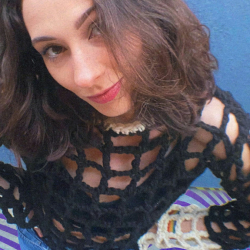Have we become lazy as we rely on our smart devices?
Calendar reminders are helpful and we’ve written lists and notes for years. These have largely transitioned to a digital format making them more accessible, but now we also have smart watches and phones that tell us when we should get up from our desk and how far we should be walking every day. Have we shut down or just re-purposed parts of our brain?
As we have a wider access to information — at the touch of a button or as we speak to our smart devices — we like to think we know a lot about a lot. The reality for just about everyone is they more likely know a lot about a little. And as the proverb goes ‘a little bit of knowledge can be a dangerous thing’.
Perhaps it’s the pace of life?
Things move so fast we don’t have the time or space to think for ourselves. We run with an idea but seem unable to think through the implications while we’re caught in the moment. What is being heard or read is often being taken as gospel — in a rush to share content, there’s no real thought about the source or validity of the opinion. Is it true? Is it credible? Just because we’ve glanced at a thread on social media it somehow registers in our psyche — and that’s a worrying thing.
The trouble is, everyone has their own version of the truth. Shares and retweets seem to enforce it. Social media enhances it, painting a picture of a life well-lived, or something that looks like reality that can be just as easily a total fraud. If separating fact from fiction is hard enough, then what, or who we believe becomes a problem.
Setting up a business online has become incredibly easy
Over the pandemic there seems to have been an exponential increase in the number of life and business coaches and mentors. On a daily basis they slide into the DM’s of new founders and business owners — offering advice from ‘lived life’ experience. Their fanciful LinkedIn profile refers to them as being ‘gurus,’ who offer life-changing coaching for just $997. Apparently, they’ve been there and got the t-shirt. Or so they say.
The reality is that they might wear the t-shirt, but does it show the signs of the sweat and tears that has earned them this position? Or has it come off a shelf in pristine condition without a single crease? When you are looking for advice it can be difficult to separate the wheat from the chaff. It’s easy to forget, if these things were that easy, wouldn’t everyone be doing it?
This lack of thinking can often transcend into advertising and marketing campaigns
Brands try to outsmart their competition and strike a chord with their audiences, yet time and again they get it wrong. Often the act of simply ‘fact or sanity’ checking seems to have been pushed to the sidelines. Take for example the insensitivity of McDonald’s recent #TrickorEat campaign or widely publicised marketing campaigns from companies that suggest ‘helpful tips’ such as star jumps, cutting down on the take away coffee to help reduce energy bills.
Or simply offering a free pair of socks to keep you warm. And don’t get me started on green-washing. I mean, what could possibly go wrong? You’d think the experience of trial by social media would have made brands wise up by now, but they won’t be the last to get it wrong.
To me it’s obvious there’s no relationship between age and wisdom. We’re human and fallible and more than capable of a lack of sense or poor judgement at any stage in our lives. While it might seem people are getting stupider, in reality, audiences are getting wiser and more judgemental.
The more we see and hear as we grow older, the more we need to condition our brains to new ways of thinking. And at the same time accept that we’ll never know everything. We can be outsmarted by those younger than us, but their good ideas can still turn out to be bad. That opens up a balance to strike between being brave and being heard. As marketers we need to have sense, good judgement and take time for sanity and fact checking.
Featured image: Wilmer Martinez / Unsplash




























